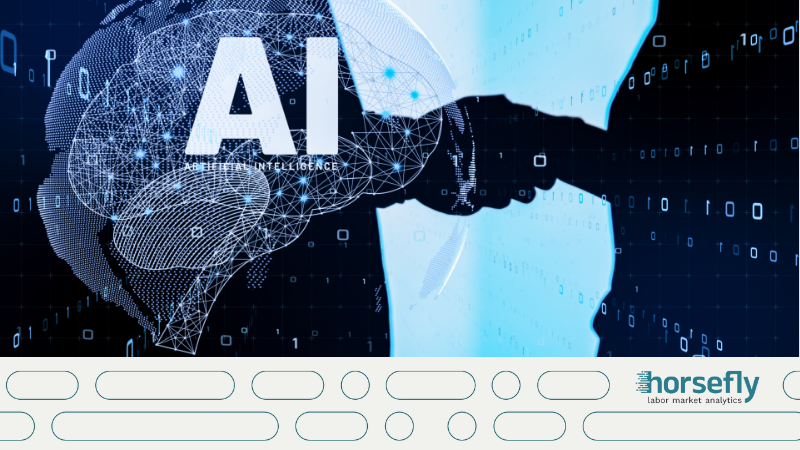The narrative around AI often focuses on replacement—but our data tells a different story. What we're actually seeing is a profound shift in the skills landscape, where human capabilities are becoming more crucial, not less.
The New Skills Paradigm
Through our analysis of global labor market trends, we're observing an interesting evolution. While technical proficiency remains important, there's an increasing emphasis on uniquely human capabilities that complement AI systems. We see four key areas where human skills are becoming increasingly valuable:
1. Critical Thinking in an AI-Augmented Context
The ability to evaluate AI outputs and understand their implications has become crucial. We're seeing an increase in job postings requiring what we call "AI-informed decision making" – the capacity to:
-
Validate and question AI-generated recommendations
-
Identify potential biases in AI systems
-
Understand when to rely on AI insights and when human judgement should take precedence
-
Synthesize AI-generated data with broader business context
The narrative around AI often focuses on replacement—but our data tells a different story. What we're actually seeing is a profound shift in the skills landscape, where human capabilities are becoming more crucial, not less.
Will Crandle
CEO, Horsefly Analytics
2. Emotional Intelligence for Human-AI Collaboration
Our analysis shows that roles involving AI oversight now frequently demand high emotional intelligence. This manifests in several ways:
-
Managing human reactions to AI integration
-
Facilitating effective communication between technical and non-technical teams
-
Building trust in AI-human workflows
-
Ensuring ethical considerations in AI deployment
%20(1).png?width=1060&height=880&name=AI%20Impact%20(1060%20x%20880%20px)%20(1).png)
3. Complex Problem-Solving: The Human-AI Partnership
The most successful organizations are those that leverage both human insight and machine learning capabilities. We're tracking a significant rise in demand for professionals who can:
-
Identify which problems are best suited for AI solutions
-
Design hybrid approaches that combine human expertise with AI capabilities
-
Adapt problem-solving strategies based on AI system limitations
-
Create innovative solutions that maximize the strengths of both human and artificial intelligence
4.Strategic Thinking in AI Implementation
Perhaps most critically, we're seeing unprecedented demand for strategic thinking around AI implementation. Leading organizations are seeking professionals who can:
-
Develop comprehensive AI integration roadmaps
-
Anticipate and plan for the organizational impact of AI adoption
-
Balance innovation with risk management
-
Create frameworks for measuring AI effectiveness and ROI
These capabilities aren't just nice-to-have additions – they're becoming fundamental requirements across industries. Our analysis of job postings across 65+ countries shows that roles combining these human capabilities with AI literacy command an average of 25% higher compensation than those focused solely on technical skills.
The Integration Challenge
The real challenge isn't just developing these skills—it's about creating frameworks where human capabilities and AI tools work in harmony. Our data shows that organizations succeeding in this space are those that approach skill development holistically.
Learning from the Leaders
Looking at our global customer base, we're seeing innovative approaches to skills transformation. For instance, a global pharmaceutical company we work with has developed a unique "AI-Human Collaboration Framework" that's yielded impressive results in R&D efficiency.
The most successful organizations are those that leverage both human insight and machine learning capabilities.
Will Crandle
CEO, Horsefly Analytics
TO UNDERSTAND MORE ON HOW ORGANIZATIONS ARE NAVIGATING THE AI TRANSFORMATION JOURNEY, REACH OUT TO US TODAY.
Sources: Horsefly Analytics
Get Started With Horsefly Today
